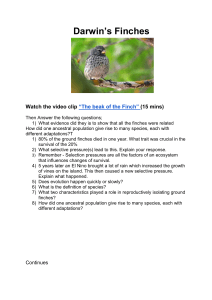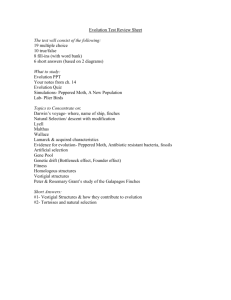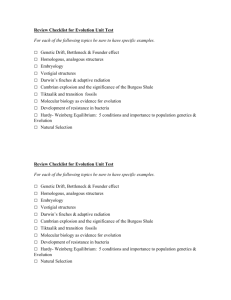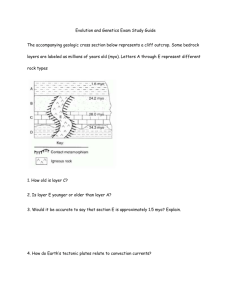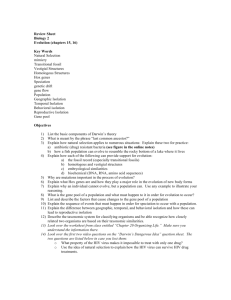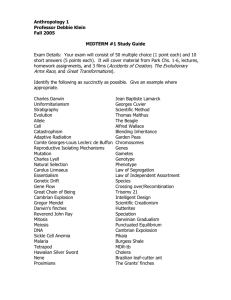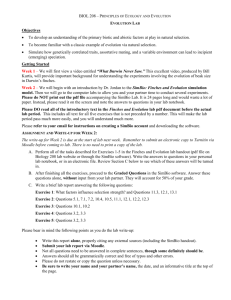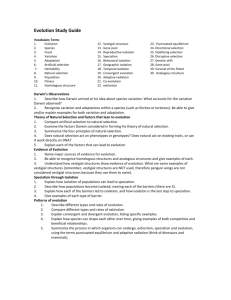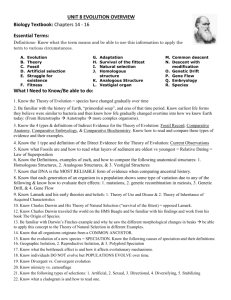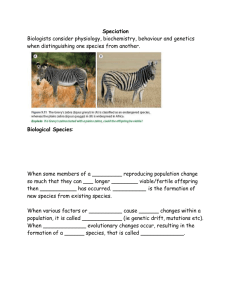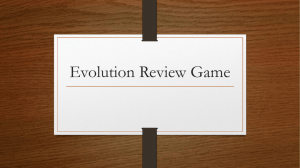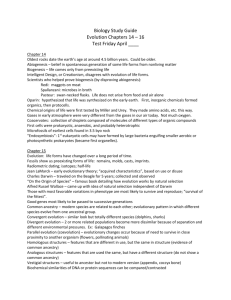File - Mr Schmitt
advertisement
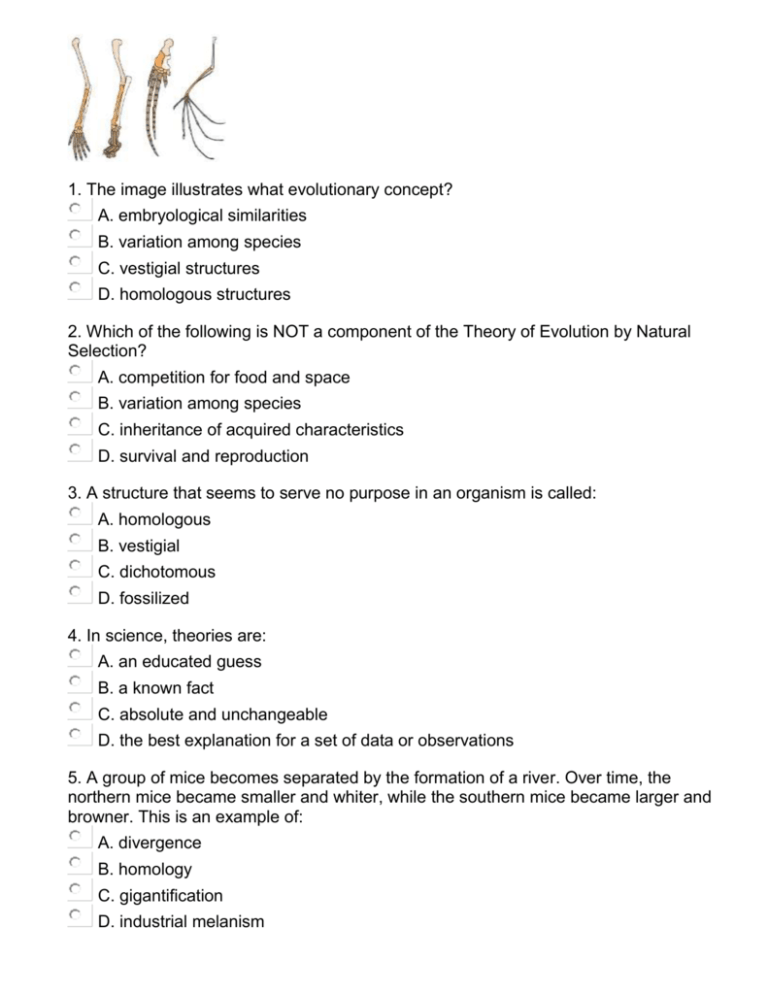
1. The image illustrates what evolutionary concept? A. embryological similarities B. variation among species C. vestigial structures D. homologous structures 2. Which of the following is NOT a component of the Theory of Evolution by Natural Selection? A. competition for food and space B. variation among species C. inheritance of acquired characteristics D. survival and reproduction 3. A structure that seems to serve no purpose in an organism is called: A. homologous B. vestigial C. dichotomous D. fossilized 4. In science, theories are: A. an educated guess B. a known fact C. absolute and unchangeable D. the best explanation for a set of data or observations 5. A group of mice becomes separated by the formation of a river. Over time, the northern mice became smaller and whiter, while the southern mice became larger and browner. This is an example of: A. divergence B. homology C. gigantification D. industrial melanism 6. Larmarke is to "Inheritance of Acquired Characteristics" as Darwin is to _____ A. divergence of related species B. homologous structures C. evolution by natural selection D. speciation by common descent 7. Any variation that can help an organism survive in its environment is called a(n): A. adaptation B. characteristic C. competition D. vestigial structure 8. The strongest evidence for change over a long period of time comes from: A. geography B. fossils C. embryo studies D. direct observation of living species 9. The dog breeds we have today were developed through: A. natural selection B. artificial selection (selective breeding) C. sexual selection D. acquired selection 10. The finches on the Galapagos island were similar in form except for variations of their beaks. Darwin observed that these variations were useful for: A. attracting a mate B. defending territory C. building nests D. gathering food 11. In a certain population, disruptive selection is occurring. In this population, which is most likely to survive? A. organisms with average traits B. organisms with extreme traits C. organisms that sexually select D. organisms that are small 12. This picture illustrates what type of selection? A. sexual B. disruptive C. directional D. stabilizing 13. In a population of woolybeasts, individuals with long snouts tend to survive better on an island that has burrowing termites. Over time, the woolybeast population consists of individuals with extremely long snouts. This is an example of: A. stabilizing selection B. directional selection C. disruptional selection D. allopatric speciation 14. Any characteristic that can help an organism survive and/or reproduce can be called a(n): A. gene B. species C. adaptation D. specialization 15. Which of the following is NOT necessary for evolution to occur? A. nonrandom mating B. variation within the species C. inheritance of characteristics D. all of these are necessary 16. What model of evolution suggests that species stay the same for a long period of time, then change abruptly due to mutations in key genes? A. good genes hypothesis B. Gradualism C. punctuated equilibrium D. fossilization 17. Female guppies tend to choose brightly colored mates. Over time, the populaton of guppies becomes more colorful. This is an example of: A. artificial selection B. natural selection C. disruptive selection D. sexual selection 18. Speciation occurs when: A. two populations become geographically isolated B. one population moves to a different area C. enough differences accumulate between two populations that they can no longer interbreed D. gene mutations accumulate 19. Darwin surmised that a few finches migrated to the Galapagos from the mainland. These finches gave rise to the many species of finches on the islands today. This is an example of: A. divergence (adaptive radiation) B. convergence C. gene flow D. genetic drift 20. Which type of evolution is shown here? A. divergence (adaptive radiation) B. convergence C. gene flow D. genetic drift 1. D 2. C 3. B 4. D 5. A 6. C 7. A 8. B 9. B 10. D 11. B 12. D 13. B 14. C 15. A 16. C 17. D 18. C 19. A 20. C
